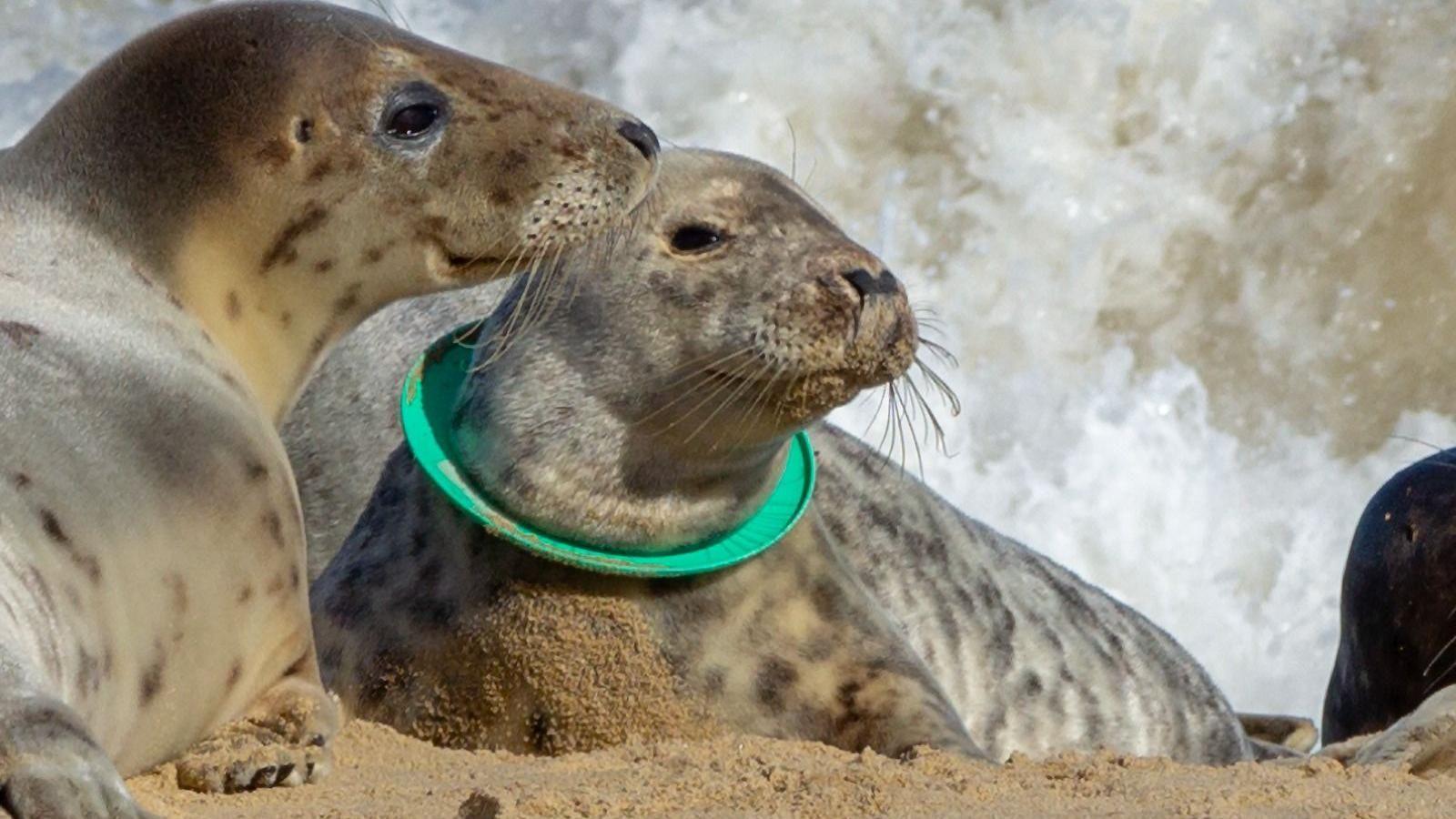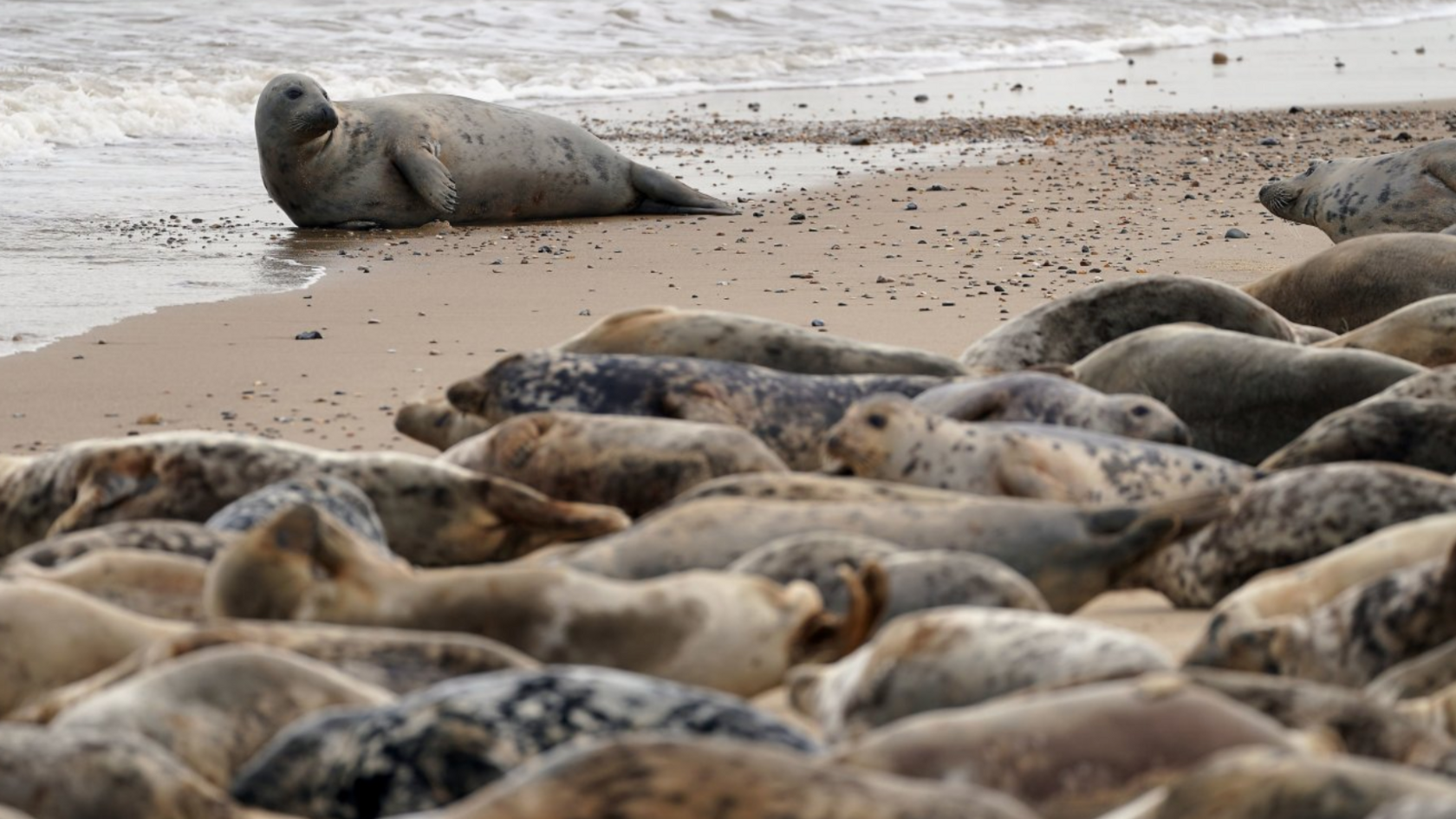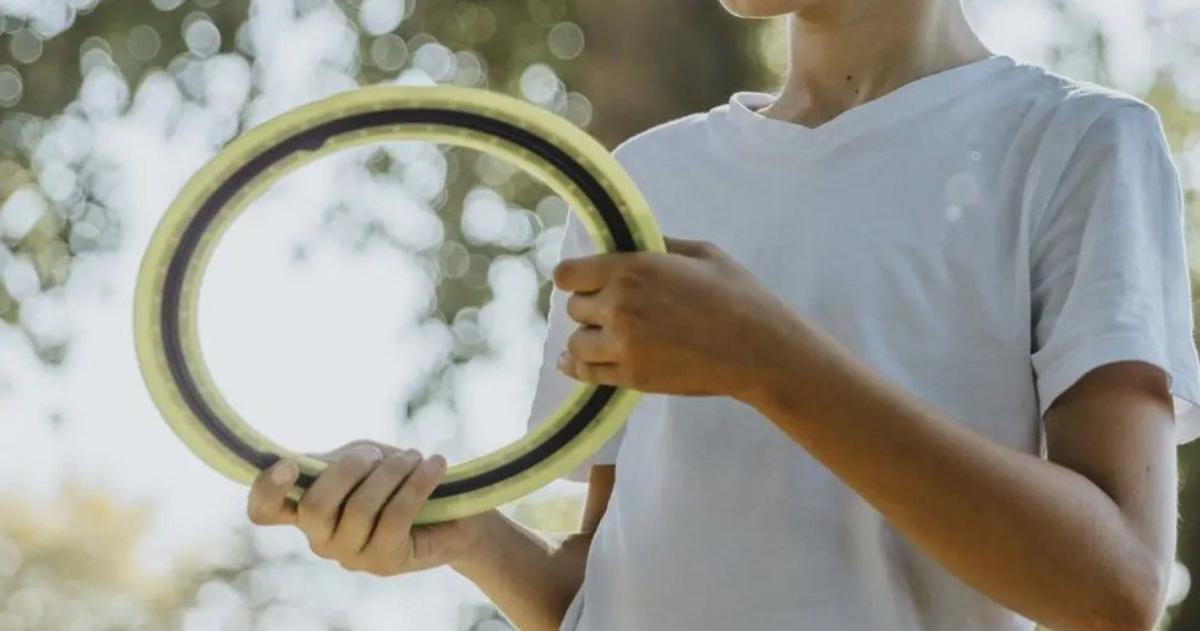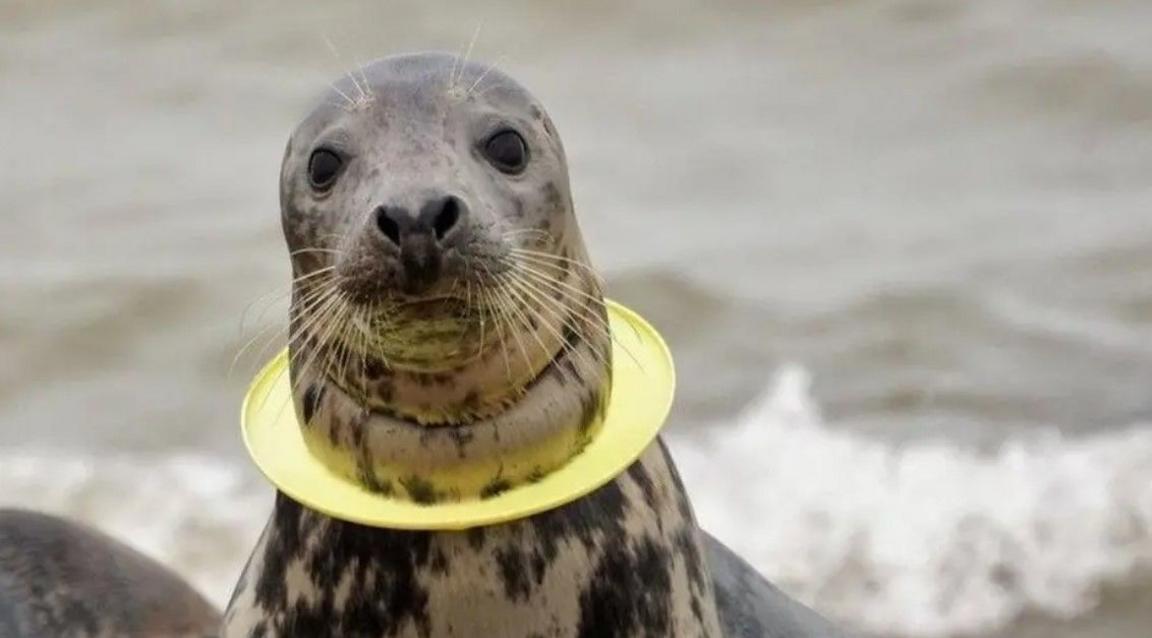'Ring frisbees' banned from beaches to protect seals

- Published
Neath Port council in South Wales has become the latest to ban plastic frisbee rings from beaches in the area to keep seals safe.
The plastic rings are a danger to the mammals because if they are left, as litter or lost, they can end up stuck round their necks causing them injury.
The UK Seal Alliance, a group made up from regional wildlife groups, is calling on the government to ban the sale of the rings as part of its 'Save Our Seals' campaign.
Other councils around the UK have brought in similar bans.
Ring frisbees banned on Norfolk beaches to protect seals
- Published22 November 2022
Record number of grey seals counted at Cumbrian nature reserve
- Published15 March
How to watch seals safely this school holiday
- Published26 March 2024

The UK is home to North Atlantic grey seals and European harbour seal too
"Young seals are naturally curious and may insert their heads in to the rings becoming entrapped" said Neath Port councillor Robert Wood, who called for this ban.
"Once stuck, the ring can cause serious injury, infection and ultimately death due to the inability of the animal to remove it."
Other councils which have also bought in a voluntary ban in England and Wales include councils in Norfolk, Cornwall and Swansea.

These are the kind of ring frisbees that cause a problem
Big shops like Sainsburys, Tesco, Pets at Home and coastal-located Asda stores have also stopped selling the items.
The ban bought in by councils is voluntary which means there are no fines or penalties if somebody does bring a plastic ring frisbee to the beach.
But over 40,000 people have signed a petition backing the UK Seal Alliance's call for a national ban.

Campaigners want retailers to stop selling the plastic rings and instead supply biodegradable alternatives.
"Flying rings pose an unnecessary and avoidable threat to seals," said Jenny Hobson from the UK Seal Alliance.
"By simply swapping to seal-safe beach toys such as a solid disc frisbee, preferably non-plastic, everyone can help protect our beautiful and iconic seals".
